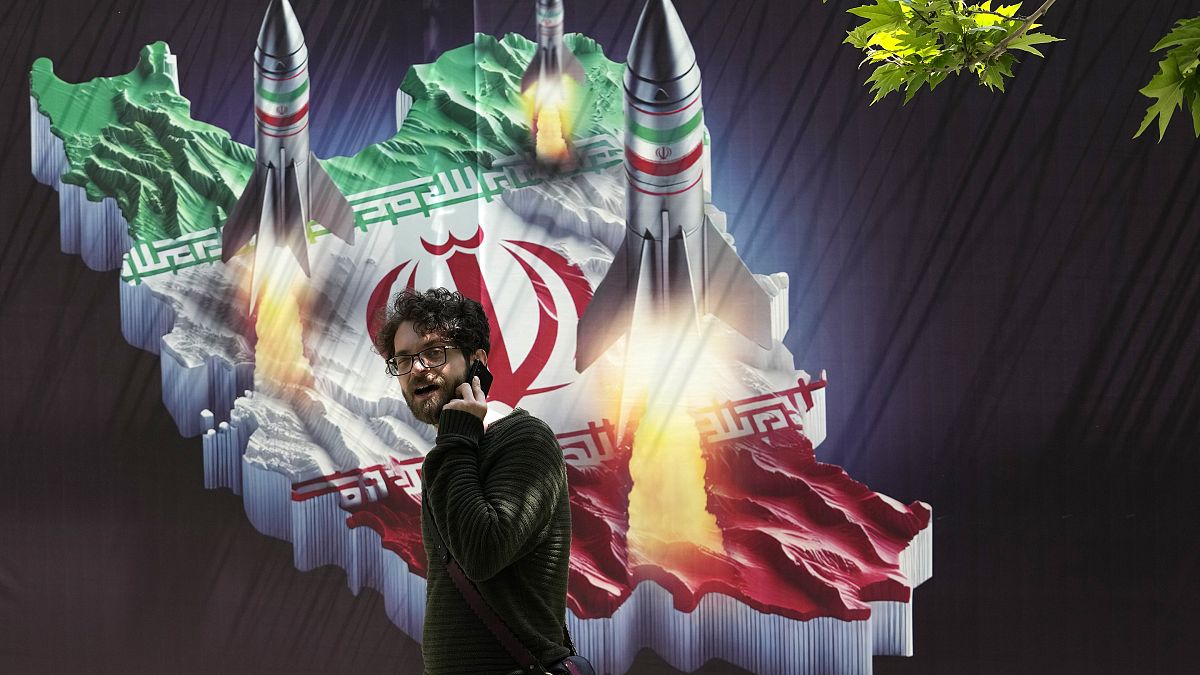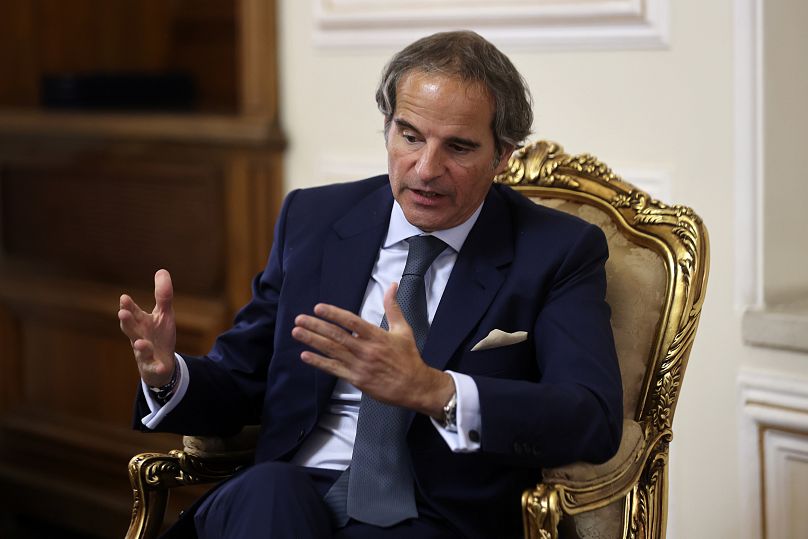
The UN nuclear watchdog chief Rafael Grossi is in Iran seeking tougher checks on the country’s nuclear programme.
The IAEA faces increasing difficulty in monitoring the Islamic Republic’s rapidly advancing nuclear programme, exacerbated by tensions across the wider Middle East over the Israel-Hamas war.
Grossi has already warned that Tehran has enough uranium enriched to near-weapons-grade levels to make “several” nuclear bombs.
He has acknowledged the agency can’t guarantee that none of Iran’s centrifuges may have been peeled away for secret enrichment.
But the head of Iran’s atomic energy organisation said that cooperation with the IAEA and adherence to the Nuclear Non-Proliferation Treaty “tops the policies and strategy of the Islamic Republic.”
“22 per cent of IAEA inspections are done in Iran. This amount of inspections has never been done in any country throughout history,” said Mohammad Eslami.
But in keeping with officials who have always maintained Iran’s nuclear programme is for peaceful purposes, added that Tehran “will expand nuclear technology with determination.”
But Iran has limited the IAEA’s ability to conduct proper checks on its nuclear activities and the UN agency faces several challenges from Tehran’s failure to explain uranium traces found at undeclared sites to barring almost all the IAEA’s top enrichment experts.
Landmark deal
The landmark nuclear deal, officially known as the Joint Comprehensive Plan of Action, was signed by Iran, mostly Western countries, and the European Union in 2015.
That agreement saw Iran receive sanctions relief in return for placing limits on its nuclear activities, particularly the degree to which it enriches uranium.

But the deal was derailed in 2018 when then-president Donald Trump withdrew the United States from it, slamming it as “the worst deal in history”.
The White House then slapped a raft of new sanctions back on Iran, adopting a ‘maximum pressure’ campaign in a bid to force the country to limit its nuclear activities.
That campaign had the opposite effect, driving Iran further from its JCPOA commitments. Iran has since started exceeding agreed-upon limits of enriched uranium and developed new centrifuges.





